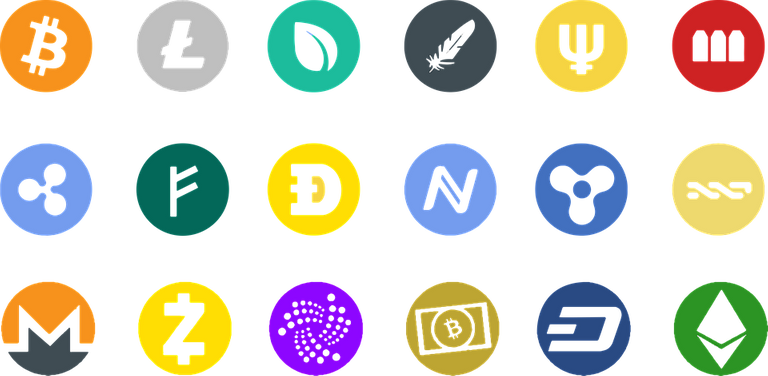We all are aware that there are so many different types of crypto in the market today. But how do we classify them ? is it even possible to do so ? let us take a look:

There is no 'official' classification of the different types of crypto, but as far as the research I have done, crypto has been classified into many different categories and I am here making an attempt to classify them into 7 different categories based on a Hackernoon article and few other ones read by myself. That one I found classified crypto well but did not explain them well enough to my liking although the intro was quite good.
So let me begin classifying them here:
i. Currency Token
A currency token is your classic and old school cryptocurrency like bitcoin which on coinmarketcap you will find referred to as 'coin' as well as 'currency'. Now in this case, there is further classification into minable and non-minable cryptocurrency. The minable ones will most probably be using Proof of Work algorithm and can be mined using hardware devices. Non-minable crypto will use other consensus algorithms for the distribution of their coins. A currency token is an attempt for the respective coin to be actually used as a currency, i.e a medium of payment for goods and services.
ii. Platform Token
These types of crypto tokens allow the creation of decentralized applications on their platform and thus are called as platform tokens. Ethereum and EOS are two basic examples of this type. Ethereum though is both a minable currency token as well as a platform token. However, the main aim of the Ethereum Foundation is to not use Ethereum as a currency like bitcoin is aiming but to become a platform for decentralized applications and organizations. EOS are looking to achieve similarly along with other projects also.
iii. Utility Token
A utility token is not meant to be used directly as a medium of exchange for goods and services, although it can be done so. The aim of a utility token as its name suggests is to provide some sort of digital utility which can be utilized to improve a digital business model and incentivize people who help build the business. These tokens can serve digital utility in many areas of commerce such as e-commerce, social media, supply chain and many others also. There are many utility tokens which are built using platform tokens especially.
iv. Security Token
You can refer to a security token as a tokenized stock which has received the approval of the USA based SEC. Security tokens are not meant to fulfill any of the previously mentioned types of tokens but they act like tokenized stocks which can also provide investors the option of earning incentives like dividends. However, a security token can also serve the purpose of a utility token as there are projects having a utility token and applying for the security token status. On the other hand, there can also be security tokens which do not serve the purpose of utility tokens.
v. Asset Token
An asset token is one that is backed by real world physical assets like gold, diamond or real estate. These types of crypto tokens can also be termed as commodity tokens as they can be backed by a commodity or a basket of commodities. One of the advantages of these types of tokens is the backing of physical assets which ensures stable price appreciation as time passes by. The disadvantage of this type of token is that it might not provide the technological and business advantages many other types of crypto tokens provide. However, I am not particularly sure about this point but a security token might also serve as an asset token. This type of tokenization will help improve real asset trading markets significantly. Governments can also take advantage by issuing their own asset tokens relying on cryptocurrency instead of a debt based fiat scheme.
vi. Fiat Token
A fiat token is a crypto token which is pegged to a fiat currency like the USD or INR. This is a big mistake in my opinion especially if governments adopt this approach. All fiat currencies are bound to decrease in value over time and this is precisely why pegging a crypto token to fiat makes no sense at all other than ideas like Tether which only helps the Tether founder and crypto traders to store their money in a relatively stable Tether over a highly fluctuating bitcoin.
vii. Reward Token
A reward token is a method of incentivizing people for using some sort of business/service. Cashback rewards can be one example of this token along with another one being the Indian government looking to use these types of tokens to reward people for using some of their services. The value of the reward token will depend on the kind of entity that issues it.
My conclusion is that currency tokens and platform tokens have the highest technological benefits among all of the others followed by utility tokens. However, it is highly debatable which one can have the best business benefits.
Good article !!! I see security token have bright future after currency token... because security going to be a most important concern in future
thanks :)
hi sudip
Congratulations @sudipn749! You received a personal award!
Click here to view your Board of Honor
Congratulations @sudipn749! You received a personal award!
You can view your badges on your Steem Board and compare to others on the Steem Ranking
Vote for @Steemitboard as a witness to get one more award and increased upvotes!